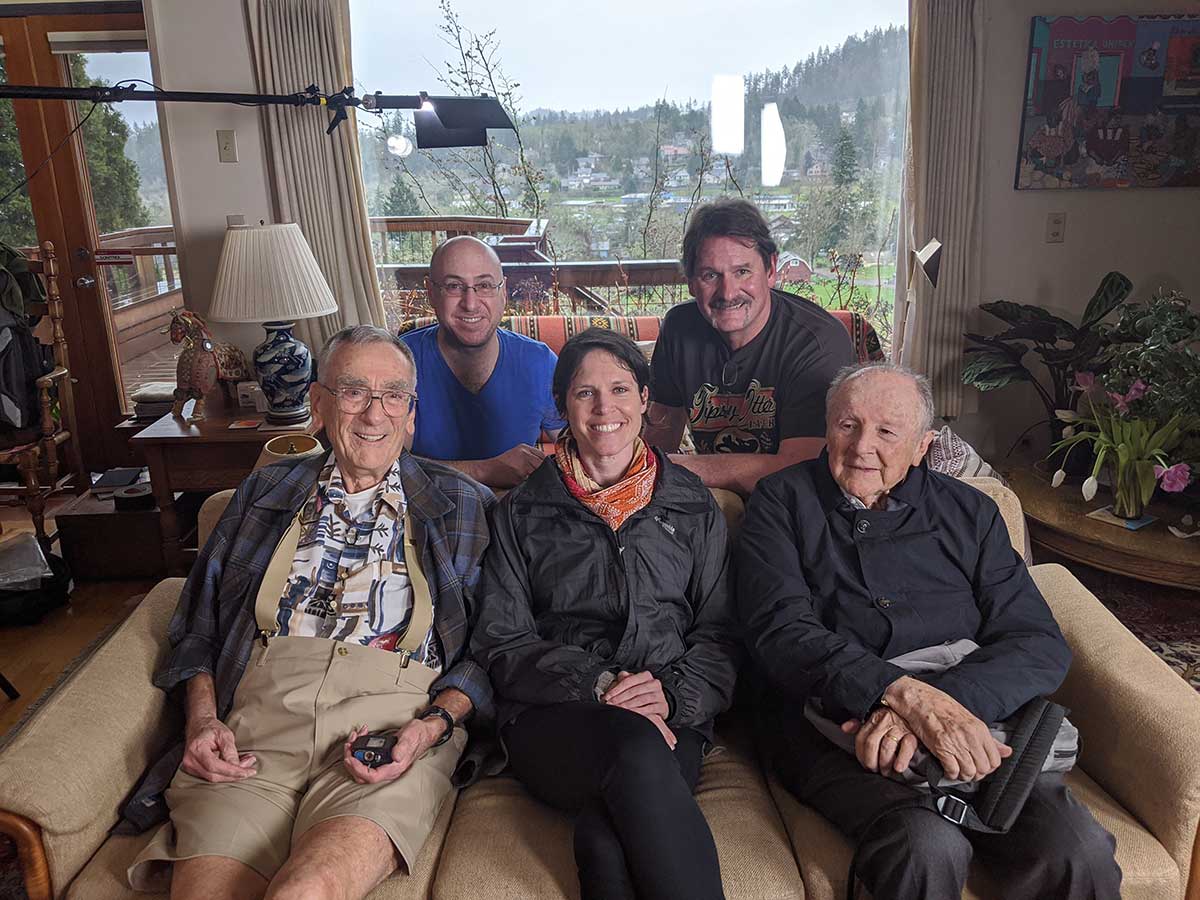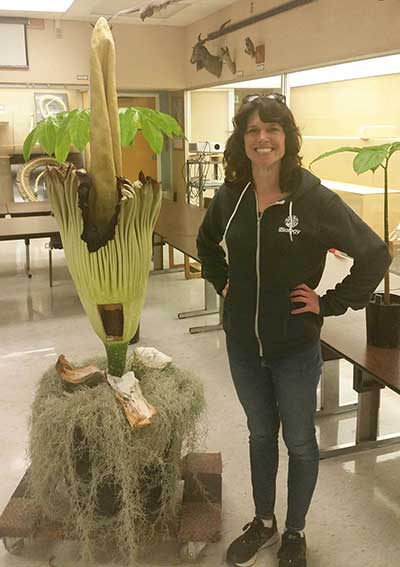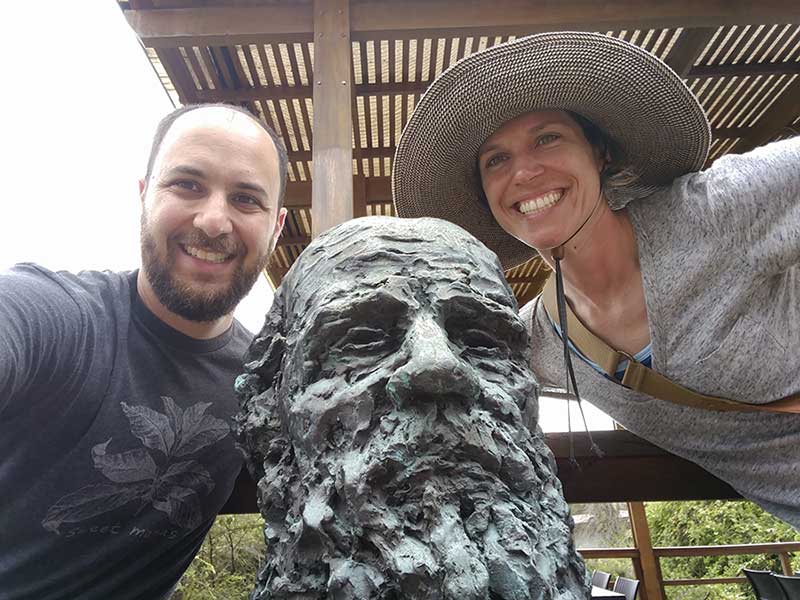For Brittany Anderton, Associate Director of Research Talks at iBiology, it took an exploratory step outside the traditional biomedical research path to realize the full potential of her scientific training. As part of the research talks team, she brings a unique background in research, teaching, and evaluation of educational programming, all critical parts of our organization. Read more about her journey to iBiology and the work she does with us here.

What’s your background?
I grew up in a small town in western Pennsylvania. I loved the living world as a child, but I didn’t know that people did science for a living until about halfway through college. After that, I knew I wanted to pursue a career as a scientist.
What brought you into science communication and education?
I completed my PhD training at the University of California, San Francisco in cancer biology. Although I loved asking scientific questions and being at the forefront of knowledge, I struggled with the hypercompetitive environment of biomedical research. In the fourth year of my PhD studies, I co-founded the Science Policy Group at UCSF. I wanted to provide opportunities for myself and other trainees to get practical experience at the interface of science and society, whether through teaching, communication, advocacy, or other efforts. My experiences leading that group and advocating for research funding at the state and national levels increased my interest in science policy, which I now recognize as a very specific flavor of science communication.

At the end of my PhD training, I recognized that I wanted to support the education and communication efforts of the life sciences community. One way to do that is to figure out ways to teach and communicate better, using evidence. I was awarded a postdoctoral fellowship to study how biologists teach and communicate about agricultural biotechnology at the University of California, Davis, with one of my science communication heroes Pamela Ronald. It was during this time that I began to understand what the spectrum of careers in science communication can look like. At the end of my postdoc, I joined the team at iBiology, where I unite my expertise in science communication training and practice with my ability to evaluate the efficacy of our projects.
What are you passionate about?
At the end of the day, I want to know that I am helping to improve the intersection of science and society. At iBiology, I get to do that by helping scientists become better communicators and by creating teaching tools that help scientists and non-scientists alike better understand how research works. My hope is that these efforts will lead to life sciences research that is trusted by, and trustworthy of, the rest of society so that personal and policy decisions are informed by the best available evidence.

What is something you have learned while working at iBiology?
Before I joined iBiology, I hadn’t worked much with video media. Now that I’ve been here for a year and half, I have a much greater appreciation of the power of video to connect with audiences and convey scientific messages. I recently watched a documentary film about a major discovery in biomedicine with several of my friends from grad school, and I found myself at times focusing on visual and sound elements of the film and wondering about the creative choices that went into putting all the parts together. For me, the next step is to start measuring what does and doesn’t work with regard to our education and communication goals with video.




Leave a Reply